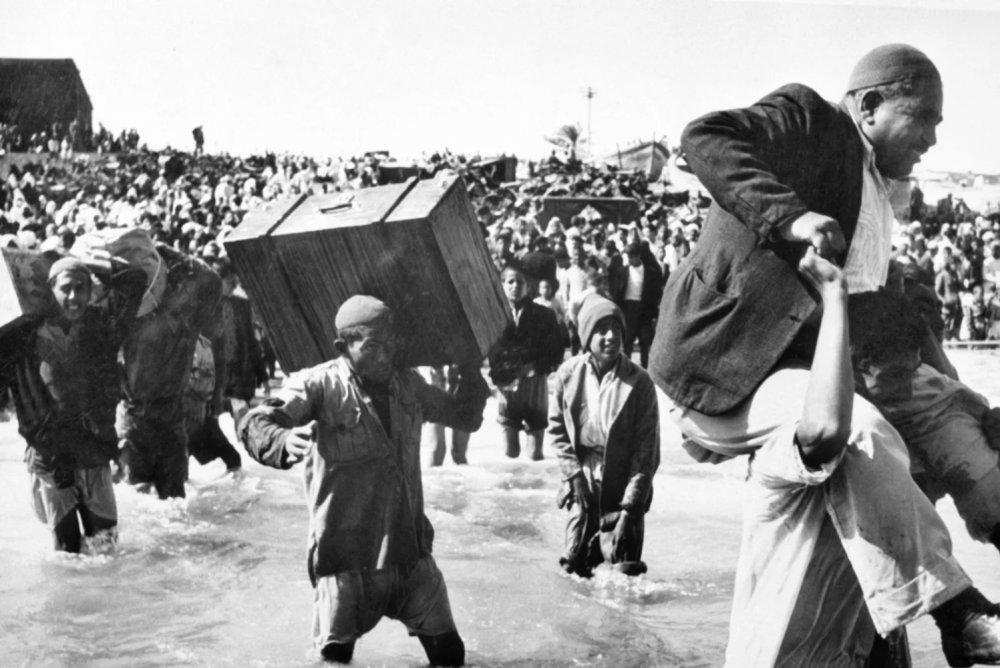No country wants to accept the blood of the “others” it shed to be born. In 1945 — three years before Palestinians were scattered and exiled from their land — George Orwell wrote in his essay, “Notes on Nationalism,” that “There is no crime, absolutely none, that cannot be condoned when ‘our’ side commits it. Even if one does not deny that the crime has happened, even if one admits in an intellectual sense that it is unjustified — still one cannot feel that it is wrong.”
So, what do we do when one denies that the crime has been committed?
As an American and a Canadian, it seemed obvious to me why the destruction of indigenous populations required acknowledgment, remembrance, and redress. Perhaps for these reasons, I used to think that Israel’s denial of its own dark past would come to a natural end.
Israelis, I believed, would develop a sense of national, multi-generational, collective security. After we had passed through the stages of grief over historic Jewish destruction, and generations of Jews would be born into a nation-state of their own, we would be strong enough to lower our defenses. Then Israel could confront what it had done.
I believed this must happen for both Israelis and Palestinians to survive. Recognizing the Nakba — the expulsion and flight of Palestinians in 1948, and the formative trauma of modern Palestinian national identity — is essential for reaching any future agreement to end the conflict, which I view as a matter of survival.
Acknowledging Israel’s role in the Nakba is also essential for historic truth, as some Israeli historians and archivists know. The importance of recognition is not only about making peace with Palestinians outside the borders of the state; Israel must know the experiences of its own Palestinian citizens, who make up a fifth of the state’s population, if relations are to ever deepen into equals.
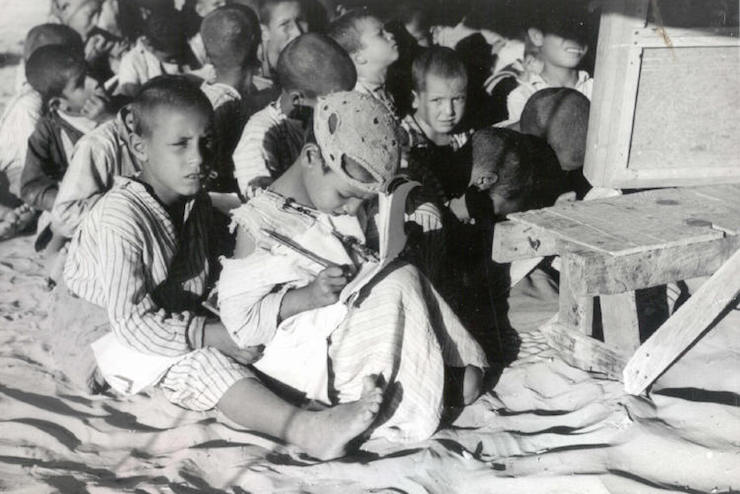
But over the years, Israel did not move away from denial and toward recognition. Instead, Israeli denialism went from forgetting and erasing the Nakba in the early decades of its existence, to an open and public crusade against any mention of it during the 2000s.
Right-wing thought-warriors such as Im Tirzu unceremoniously labeled the Nakba “bullshit” in an aggressive public campaign. In 2011, the Knesset passed the so-called “Nakba Law,” which stipulates that state-funded institutions could lose their support if they allow the commemoration of the Nakba on Israeli Independence Day. The legislation was based on the ill-conceived notion that the Palestinian people — or any national group for that matter — can be intimidated into forgetting their national history.
Some thought that the Nakba Law could have sparked a backlash in the form of an accelerated national revival among Palestinian citizens of Israel. The double attack on free speech and Palestinian identity also angered activist left-wing Jews and created a clear means to test Israel’s will. Simply observing the Nakba on Israeli Independence Day at any public institution would trigger the law — a classic demonstration of civil disobedience.
None of this truly happened. For Palestinian citizens of Israel, the decade got worse. Israel passed legislation designed to bar them from living in Jewish-only communities; upheld and extended an amendment to its citizenship law that made it hard for Palestinian families to live together; and eventually passed the Jewish Nation-State Law, which constitutionally designated them second-class citizens. All the while, incitement against Palestinian citizens from the political leadership reached a fever pitch.
Responding to these assaults became a higher priority for Israel’s Palestinian community than asking Israelis to recognize the Nakba. Those Jewish citizens committed to acknowledging history of 1948 remained radical and few.
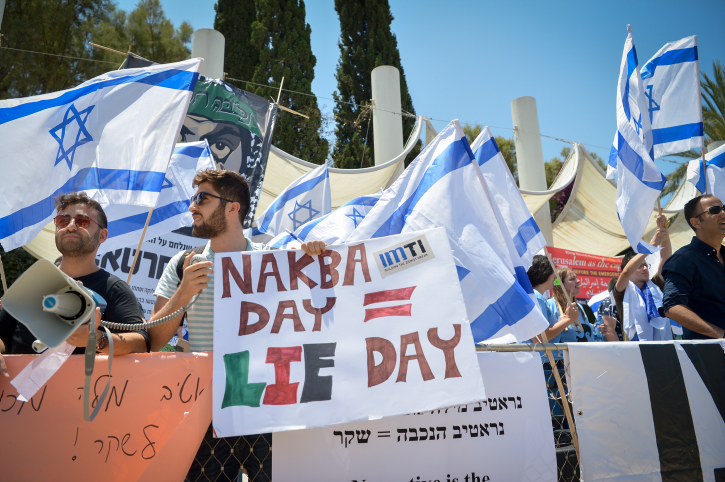
Still, perhaps the passage of time and committed historians had their own impact. A few polls I reviewed in 2013 made it seem as if the facts might be sinking in, indicating that more Israelis seemed prepared to accept Israel’s role in the historical events of the Nakba.
But in fact, Israelis remained steadfastly opposed to the political ramifications of accepting responsibility. This was evident in polls before and after the right-wing denialist crusades of the 2010s. In a poll for the peace group One Voice, 60 percent of Israeli Jews rejected even acknowledging the suffering of Palestinian refugees.
When I last tested a question about Palestinian refugees among Israelis, rejection of the standard two-state negotiation proposals was as high as ever. In July 2018, 70 percent of Jews rejected a proposed right of return to a new state of Palestine that included allowing around 100,000 returnees to settle in Israel as part of a family unification program (or otherwise given compensation). The Trump plan released in January, meanwhile, does not allow a single refugee back to Israel, and even to a future Palestinian state there are no guarantees.
The wall of rejection had developed into an elaborate argument by this time. One starting point is to deny the historic facts of the Nakba, including Israel’s planning and responsibility for the flight of Palestinians in 1948. The next part of the argument is rejection of return, arguing that there is no basis for such a right in international law, and even if there is, it does not apply to Palestinians.
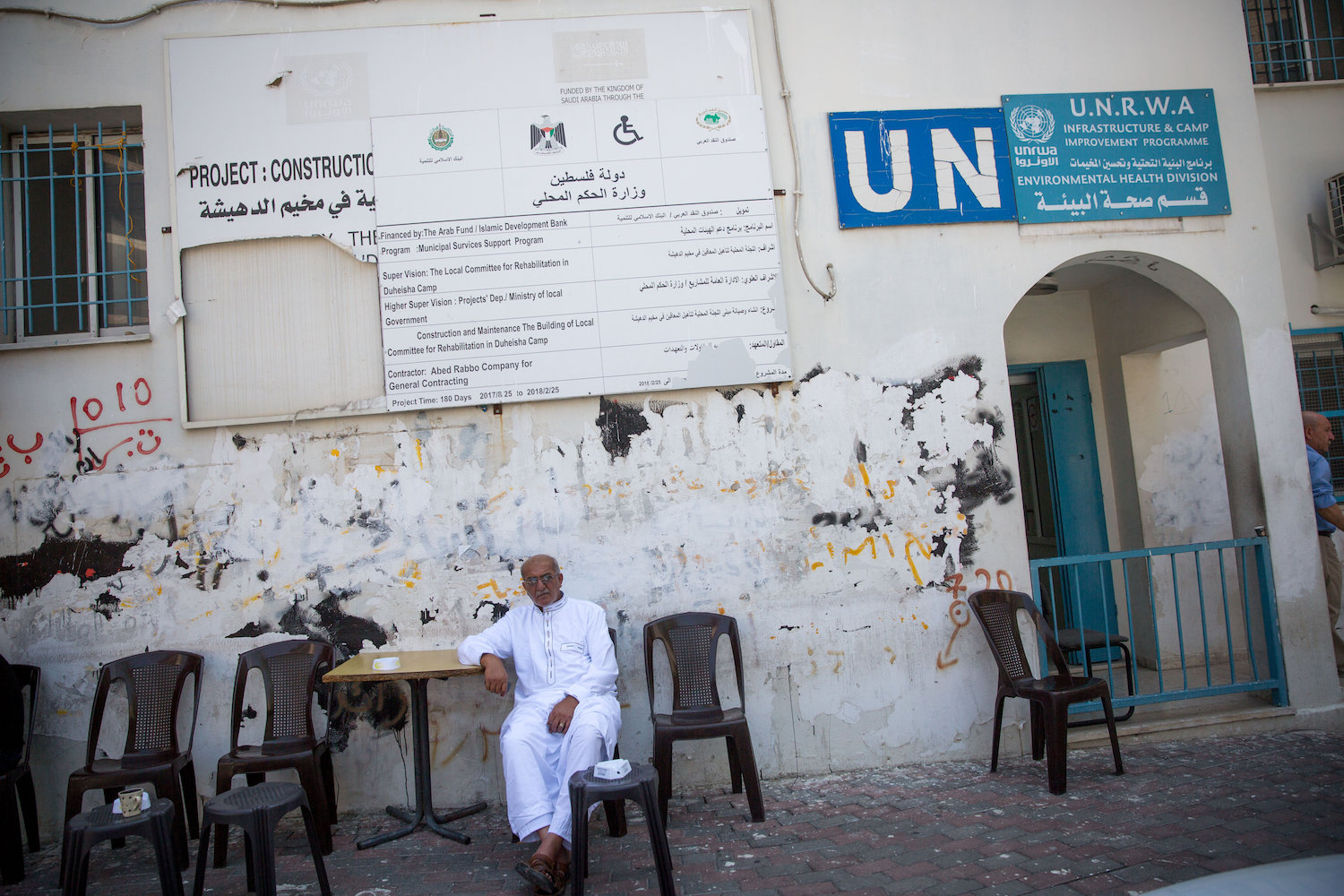
These points aim to justify the claim that Palestinians invented the right of return in order to destroy Israel. This widespread narrative implicitly depends on the idea that in any other relevant or comparable conflict, refugees either do not demand return, do not claim the right for future generations, have no right if they are a minority in the home country, or in any case, do not return in practice.
However, having confronted equally wrenching and emotional refugee claims in my extensive work on other conflict regions, including in Cyprus and the Balkans — and having heard the stories of Palestinian friends whose families have been scattered to the winds — I could not accept the falsehood that Palestinians are somehow unique (or uniquely evil) because they long to return.
My contribution to the discussion around the Nakba this year, therefore, is my last resort: a report that takes a deep dive into four different conflicts that span five decades and three continents (with Israel-Palestine representing Asia), and overlap with the historic era of the Palestinian refugee claims.
While no two situations are identical, there can be uncanny similarities. Perhaps, I thought, Israeli minds can be opened by a confrontation with the suffering of others displaced by conflict and their deep desire to be allowed to return. Perhaps realizing that at least some form of return was accepted as part of the processes to end these other conflicts — and not denied by the opposing community — could defuse the defensiveness and lead the way.
My starting point was affirmed by the research: Palestinian claims to return are not unique. But the study turned up further observations about aspects Israelis believe are unique to the Palestinian case: the inherited status of refugees or displaced people is not unique. Neither is minority return, although it was only anchored in formal policy in the 1990s. Before then, no international law or norm indicated any limitation on return for refugees, minority group or not.
There is at least one finding that is difficult for Palestinians: the right of return for multiple generations of minority communities in their home countries has been offered before, but not been fully implemented anywhere except Rwanda. Bosnia and Kosovo formally granted that right (Bosnia through the Dayton Agreement, and Kosovo in its 2008 Constitution), and in both cases, return was meaningfully encouraged. But in practice, refugees from the minority groups only trickled back.
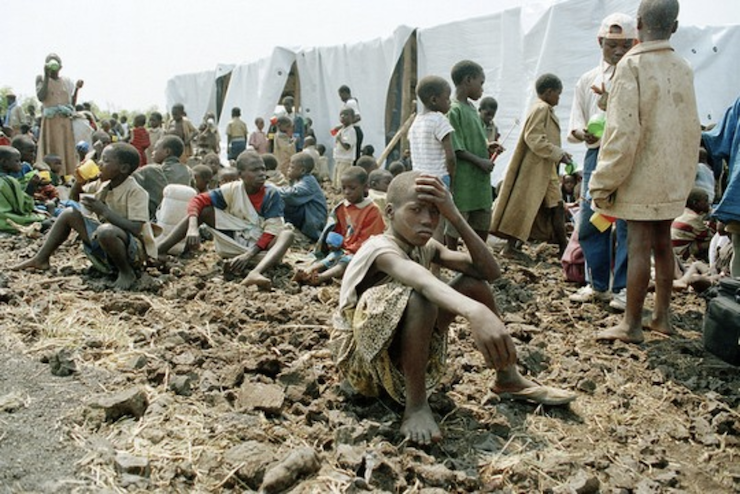
In Rwanda, the right is encouraged and largely implemented — but at the cost of suppressing the ethnic identity of all citizens into a single Rwandan nation. Greek and Turkish Cypriot leaders have negotiated partial-return solutions in detail, but never managed to pass a peace agreement at all. The issue remains unresolved.
I have received a wide range of responses to the report in the weeks since it was published. Some criticized the effort at comparison entirely. Some criticized my choice of cases, which they thought favored the Palestinian argument. Others criticized the attempt to document and empathize with the Israeli national consciousness and fears. I also suggest that a political mechanism acknowledging the separate national identities of both sides is the more politically realistic approach.
I have been collecting and thinking about all the new angles to emerge from this discussion. Because while the mainstream Israeli narrative insists that Palestinians must drop the right of return, I believe Israelis must drop their resistance.


